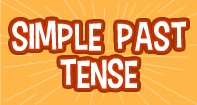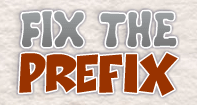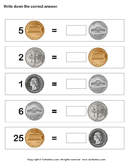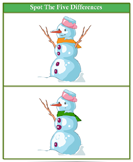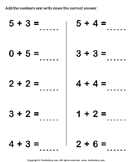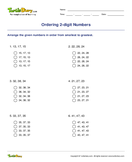- HOME
- KIDS SCIENCE EXPERIMENTS
- PLURAL PRONOUNS
Plural Pronouns

 Most browsers are no longer supporting Flash games.
We are working on making Flash playable in your browser or we will replace this game with a version that does not need Flash. Our team is actively working on it. Please check back later and keep enjoying our non-Flash games !!
Most browsers are no longer supporting Flash games.
We are working on making Flash playable in your browser or we will replace this game with a version that does not need Flash. Our team is actively working on it. Please check back later and keep enjoying our non-Flash games !!
Plural Pronouns
Pronouns are the words that take the place of nouns. A plural pronoun takes the place of a noun that names more than one person, place or thing.
Here is an example of a plural pronoun taking the place of a plural noun.
| EXAMPLE | EXPLANATION |
| • The boys played baseball at recess | • Boys is a plural noun. |
| • They played baseball at recess. | • The pronoun they takes the place of the noun boys. They is a plural pronoun. |
A list of Plural Pronouns
The table below contains pronouns that are always plural. These pronouns cannot be used as singular pronouns. When plural pronouns refer to people, they use either the first, second or third person perspective or point of view or place.
| Plural Pronouns & Their Perspective | |
| We | First person |
| Us | First person |
| Ourself | First person |
| Yourselves | Second person |
| They / Them | Third person |
| Themselves | Third person |
Read the examples below to learn how plural pronouns are used in sentences:
1. We took jobs at the school.
We tells who is speaking, and we know there is more than one person speaking.
2. Would you like to go with us?
Us tells who is speaking, and we know there is more than one person speaking.
3. We took the decorations down ourselves.
Ourselves is used to restate the pronoun we, and we know there is more than one person speaking.
4. Caroline and Tina, are you able to do this yourselves?
Yourselves indicates who is being spoken to (Caroline and Tina) and we know there are more than one person being spoken to.
5. They asked Brian to give a speech during the ceremony.
They indicates that there is more than one person speaking.
6. We thanked them for a special treat.
Them indicates that there is more than one person being spoken to.
7. Karla and Toby decided to build the shed by themselves.
Themselves replaces the nouns (Karla and Toby) and indicates that more than one person is doing the action.
Pronouns that are both singular and plural
Some pronouns can be used as either singular or plural, depending on the context of the sentence. The pronouns you, that, which and who can apply to either one or more than one person, place, thing or idea.


